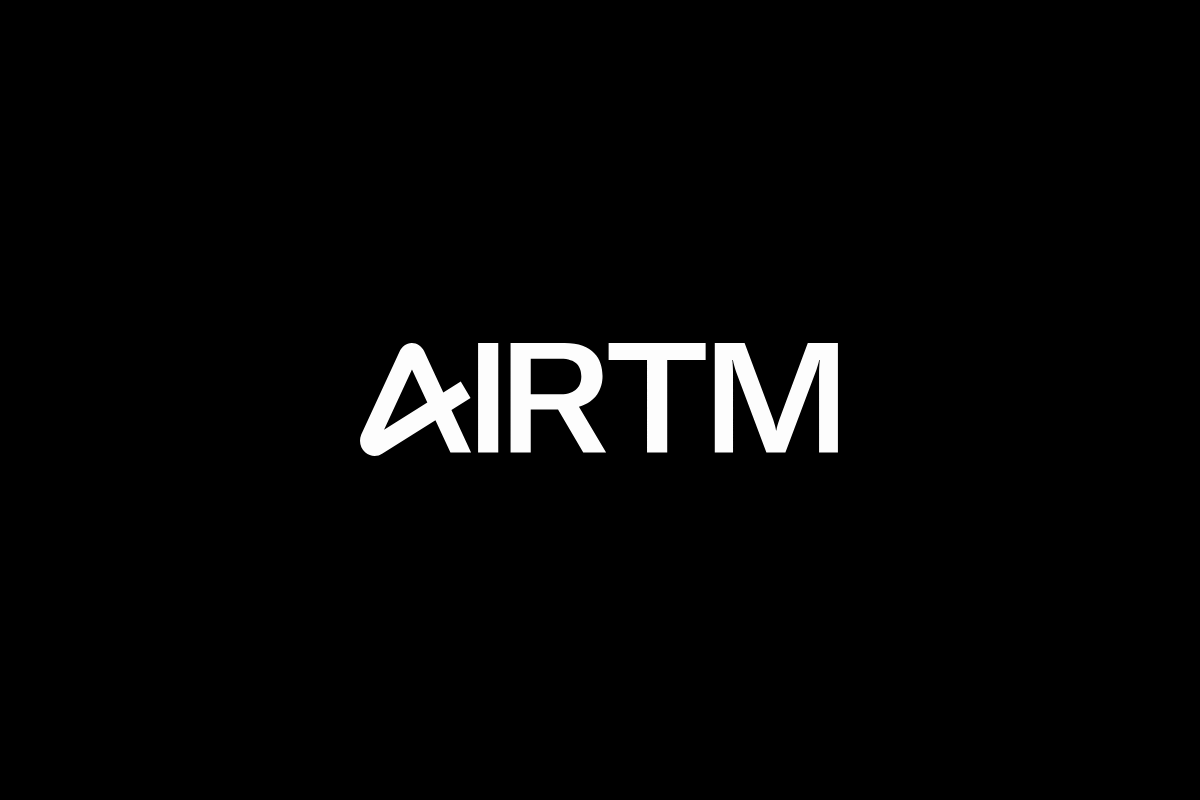Fintech
Tenet Year-end 2021 Audited Financial Results Confirm Growth Trajectory with Revenues of $103.6M for the Year

Toronto, Ontario–(Newsfile Corp. – May 2, 2022) – Tenet Fintech Group Inc. (CSE: PKK) (OTC Pink: PKKFF) (“Tenet” or the “Company”), an innovative AI service provider and operator of the Business Hubs™, today announced its financial results for the year ended December 31, 2021. The Company reported revenues of $103.6M, an adjusted EBITDA of $2.48M and a net loss of $48.5M for the year. While the figures fall short of the forecasts set by the Company for the year, they are nonetheless indicative of the Company’s growth potential. The missed forecast is largely ascribed to the Company having to reassess and adjust its short-term cash flow strategy, which led to unexpected delays in certain segments of its operations. All amounts expressed are in Canadian dollars.
2021 Financial Highlights:
-
Total Revenue of $103.6M
-
Adjusted EBITDA of $2.48M
-
Net Loss of ($48.5M)
Comparative Summary of Key Financial Metrics from 2018 to 2021
| 2021 | 2020 | 2019 | 2018 | |
| Revenue | $103,632,774 | $42,698,047 | $11,708,653 | $1,681,534 |
| Expenses1 | $101,145,243 | $44,556,226 | $10,173,036 | $3,260,765 |
| Adjusted EBITDA2 | $2,487,531 | ($1,858,179) | $1,535,617 | ($1,579,231) |
| Net Income (Loss) 3 | ($48,561,968) | ($5,513,511) | ($1,830,361) | ($3,608,920) |
- Expenses do not include interest, taxes, depreciation (including impairment of intangible assets) loss on settlement of debt, gain on bargain purchase and amortization
- Adjusted EBITDA equals net income (loss) before finance costs, taxes, depreciation, amortization and impairment of intangible assets, loss on extinction of debt, gain on bargain purchase and amortization. Adjusted EBITDA is provided as supplementary earnings measure to assist readers in determining the Company’s ability to generate cash-flows from operations and to cover finance charges. Adjusted EBITDA and EBITDA are also widely used for business valuation purposes. Adjusted EBITDA does not have a standardized meaning prescribed by IFRS and may not be comparable to similar measures presented by other companies.
- The net loss for 2021 includes a total of $53,364,705 in impairment charges related to the Company’s acquisition of Cubeler for which forecasted revenues shifted by almost a year due to the delayed launched of the Company’s Canadian Business Hub™. Part of the impairment charges may be reversed in the future following the launch of the Company’s Canadian operations.
2021 Operating Highlights:
-
Partnership agreement with ecommerce software provider ShopEx
-
Re-emergence and integration of the Gold River ecommerce and logistics platform to Business Hub
-
Integration of Business Hub™ to China UnionPay network
-
Creation of first virtual bank accounts on Business Hub™ and first fund transfer and payment processing transactions on China UnionPay network
-
First participation in “618 Shopping Festival” with JD.com retailers and suppliers
-
Opening of new offices in Beijing and Guangzhou
-
Creation of new subsidiary to allow the Company to provide services related to the selling and distribution of oil and gas products and clean technology products through the Business Hub™
-
Creation of new subsidiary to allow the Company to provide services related to the selling and distribution of property and liability insurance products in China through the Business Hub™
-
Rebranding of ecosystem from “Lending Hub” to “Business Hub”
-
Closing of a short form prospectus financing of $52M
-
Acquisition of “Heartbeat” insurance product management and brokerage platform
-
Acquisition of AI and analytics company and owner of Business Hub intellectual property, Cubeler Inc.
-
Agreement with Ping An Insurance for the sale and distribution of auto industry insurance policies through Heartbeat platform
-
Revenue sharing agreement with PetroChina related to the installation and maintenance of automated coffee distribution machines as well as the sale of coffee at PetroChina convenience stores.
Review of 2021
“We believe the revenue growth and operational progress we made in China in 2021 validate what we’ve been telling everyone all along about the potential behind the concept of our Hub,” commented Tenet CEO Johnson Joseph. “With the addition of payment processing features, the integration of service offerings to the insurance sector and value-added programs and features to facilitate transactions among our members, we rebranded our ecosystem from ‘Lending Hub’ to ‘Business Hub’ in 2021 because it is about so much more than just lending. While some may look at the 2021 financial results from a ‘glass half empty’ perspective and focus on the EBITDA and net income shortfalls, we, on the other hand, believe there are far greater reasons to look at the glass as being ‘half full’ than ‘half empty’. Not only are we continuing to show the ability and potential for exceptional growth in China, but our acquisition of Cubeler has freed us to turn the Business Hub concept into a global AI-powered network that will allow the world’s SME business owners and executives to connect and conduct business with each other. Also, if you take away the impairment hit that we took related to the Cubeler acquisition and the fact that almost all the insurance related revenue and profits expected in Q4 were delayed by about two quarters, then the total revenue, EBITDA and net income for the year would actually beat what we had forecasted for 2021.”
The foregoing comments notwithstanding, 2021 was a banner year for Tenet in more ways than one. From a Chinese operations standpoint, the Company took part for the first time in three shopping festivals, “618” in June, “Singles’ Day” in November and “Couples’ Day” in December, which combined to help Tenet generate over 25% of its total revenue for the year and helped improve its overall margins related to its service offering to the consumer goods supply chain segment. While the consumer goods supply chain segment should provide a solid base for potential growth in China for years to come, Tenet began servicing several other verticals in 2021 that should also provide strong growth potential but with better profit margins. The insurance sector is one such vertical, which the Company was able to enter thanks to its acquisition of the Heartbeat insurance product management and brokerage platform in the third quarter. Tenet had expected to see significant returns from Heartbeat in terms of revenue and profits in the fourth quarter. However, the Company had to delay certain investments related to the operation of the platform and the development of certain related products. This was necessary as Tenet reassessed its short-term cash flow strategy as a result of the uncertainty surrounding the Company’s ability to access the US capital markets due to the ongoing review of Tenet’s registration statement by the US Securities and Exchange Commission.
As the world’s second largest economy, China will always play a key role in in Tenet’s future plans. But in order to create a global AI-powered network for the world’s SME business owners and executives, the Company would have expand beyond China’s borders to create Business Hubs™ all over the world, which would then be connected into that single global network. That is in large part why Tenet believes its acquisition of Cubeler during the fourth quarter to be the most important transaction in the Company’s history. Cubeler’s technology is at the core of Tenet’s Business Hub™. It can be likened to the operating system that all the Business Hub’s components and platforms sit on or are connected to in order to function. So not only did the acquisition of Cubeler provide Tenet with ownership of the technology responsible for generating over 90% of the Company’s revenue, it also allows Tenet to commercialize the technology on a global basis. The Company believes that that transaction alone made 2021 an exceptional year for the Company, despite the fact that various factors combined to delay the launch of the Company’s first Business Hub™ outside of China.
Outlook for 2022
The launch of the Company’s Canadian Business Hub™ is the single most important event to look out for in 2022. That launch is expected to lead to a few adjustments to Tenet’s Chinese Business Hub™. The rules for posting messages, operating a website and for general Internet behaviour are different in China than they typically are in other parts of the world. Considering that the Company’s Chinese Business Hub™ will first be linked to its Canadian Business Hub™ and eventually to other Hubs around the world, certain adjustments will be made to both Hubs in 2022 to ensure compliance with Chinese standards for Internet conduct while minimizing potential adverse impacts on the features available to all Hub members. The business models of the two Hubs will also vary considerably, at least initially. While the Chinese Hub model services specific verticals and earns revenue through transactional services fees, revenue with the Canadian Hub is expected through a combination of the development of AI and analytics based products and services and through advertising, revenue streams that will eventually also be introduced in China. Given that most other markets where the Company expands the network in the future will have more in common with Canada than with China, Tenet also plans to make the necessary investments in 2022, in terms of time and money, to ensure that the Canadian Business Hub, once launched, will have enhanced features and modules that will allow for the relatively quick and seamless expansion of the platform to other parts of the world.
While the launch of the Canadian Business Hub will be the top priority for Tenet in 2022, its Chinese operations will remain the Company’s main revenue generator during the year. China was the initial launchpad of the Company’s Business Hub and with good reason. China is estimated to have over 40M SMEs and over 70M micro-enterprises and this wealth of potential users and customers will continue to offer exceptional growth opportunities for the Company for years to come. Tenet plans to continue to use the industrial vertical targeting approach that has worked so well to date to continue to grow its operations in China. In particular, the consumer goods supply chain vertical should once again pace the Company’s revenues in 2022. The Chinese Business Hub services the vertical through various programs and events, such as through its JD.com supplier financing program, at Chinese shopping festivals, and to clients ranging from social media influencers to large-scale consumer goods distributors.
In terms of potential profitability, the industrial sector that the Company is most enthusiastic about is the clean tech sector, which Tenet plans to dive into in 2022 with its innovative i3060 platform. With China and countries around the world looking for clean tech solutions to help fight climate change, the i3060 platform’s ability to digitize the feasibility study and life cycle of clean energy projects makes Tenet well placed to capitalize on clean tech opportunities, which could account for as much as 8% of the Company’s revenue in 2022.
Part of Tenet’s capital markets strategy for 2022 remains what it was for 2021, which is to have the Company’s securities listed on senior stock exchanges in some of the world’s better known capital markets. Although the Company has not been given a timetable as to when the SEC review process might be completed, Tenet plans to continue to work in a collaborative fashion with the SEC with a view to an eventual return of its securities on the Nasdaq in 2022. Meanwhile, the Company will take measures to have its common shares listed on other senior exchanges in 2022 in the UK and Canada. Tenet believes that having its securities listed on senior exchanges in London and Toronto will provide the Company with greater access to capital and a diversified pool of investors and position the Company for success regardless of how long the SEC’s review process of its listing registration statement ultimately takes.
Despite the delay in the launch of its Canadian Business Hub™ and the shifting of its insurance related revenue in China, the Company has not judged it necessary to revise its guidance for 2022 as it believes other revenue streams will compensate for the delays.
Fiscal 2021 Financial Results Summary
In summary, the Company generated $103,632,774 in revenue in 2021 (compared to $42,698,047 in fiscal 2020). Total expenses for fiscal 2021 amounted to $153,806,561, compared to $47,359,548 in 2020.
The net loss for the year was $48,561,968 compared to $5,513,511 in 2020. Full details of the Company’s 2021 financial results can be found in the Audited Consolidated Financial Statements and Management’s Discussion and Analysis (MD&A) for the years ended December 31, 2021 and 2020, which are available at www.sedar.com.
Tenet will host an investor webinar on Tuesday, May 3rd at 4:30 pm ET, where President & CEO Johnson Joseph and CFO Jean Landreville will discuss the Q4 2021 financial results. Registration for the event is available at: https://tinyurl.com/8z5pja7e. Please submit your questions related to the Q4 results in advance to [email protected] or [email protected].
About Tenet Fintech Group Inc.:
Tenet Fintech Group Inc. is the parent company of a group of innovative financial technology (Fintech) and artificial intelligence (AI) companies. All references to Tenet in this news release, unless explicitly specified, includes Tenet and all its subsidiaries. Tenet’s subsidiaries provide various analytics and AI-based services to businesses and financial institutions through various Business Hubs™ to create a global ecosystem where analytics and AI are used to create opportunities and facilitate B2B transactions among its members. Please visit our website at: http://www.tenetfintech.com
For more information, please contact:
CHF Capital Markets
Cathy Hume, CEO
416-868-1079 ext.: 251
[email protected]
MZ Group – MZ North America
Mark Schwalenberg, CFA
312-261-6430
[email protected]
Follow Tenet Fintech Group Inc. on social media:
Twitter: @Tenetfintech
Facebook: @Tenetfintech
LinkedIn: Tenet Fintech
YouTube: Tenet Fintech
Forward-Looking Statements / Information:
This news release may include certain forward-looking information, including statements relating to business and operating strategies, plans and prospects for revenue growth and listing plans, using words including “anticipate”, “believe”, “could”, “expect”, “intend”, “may”, “plan”, “potential”, “project”, “seek”, “should”, “will”, “would” and similar expressions, which are intended to identify a number of these forward-looking statements. Forward-looking information reflects current views with respect to current events and is not a guarantee of future performance and is subject to risks, uncertainties and assumptions. The Company undertakes no obligation to publicly update or review any forward-looking information contained in this news release, except as may be required by applicable laws, rules and regulations. Readers are urged to consider these factors carefully in evaluating any forward-looking information.
Fintech
Fintech Pulse: Your Daily Industry Brief (Chime, ZBD, MiCA)

As we close out 2024, the fintech industry continues to deliver headlines that underscore its dynamism and innovation. From IPO aspirations to groundbreaking regulatory milestones, today’s updates highlight the transformative power of fintech partnerships, regulatory evolution, and disruptive technologies. Here’s what you need to know.
Chime’s Quiet Step Toward Public Markets
Chime, the U.S.-based financial technology startup best known for its digital banking services, has taken a significant step by filing confidential paperwork for an initial public offering (IPO). As one of the most valuable private fintechs in the U.S., Chime’s move could potentially signal a renewed appetite for fintech IPOs in a market that has been cautious following fluctuating valuations across the tech sector.
With a valuation that reportedly exceeded $25 billion in its last funding round, Chime’s IPO could set a new benchmark for the industry. Observers note that its strong customer base and revenue growth may make it an appealing choice for investors seeking to capitalize on the digital banking boom. However, the timing and success of the IPO will depend on broader market conditions and the regulatory landscape.
Source: Bloomberg
ZBD’s Pioneering Achievement: EU MiCA License Approval
ZBD, a fintech company specializing in Bitcoin Lightning network solutions, has made history by becoming the first to secure an EU MiCA (Markets in Crypto-Assets Regulation) license. This landmark approval by the Dutch regulator positions ZBD at the forefront of compliant crypto-fintech operations in Europe.
MiCA, which aims to harmonize the regulatory framework for crypto-assets across the EU, has been a focal point for industry players aiming to establish legitimacy and expand their offerings. ZBD’s achievement not only validates its operational rigor but also sets a precedent for other fintech firms navigating the evolving regulatory landscape.
Industry insiders view this as a strategic advantage for ZBD as it broadens its footprint in Europe. By leveraging its regulatory approval, the company can accelerate its product deployment and establish trust with institutional and retail users alike.
Source: Coindesk, PR Newswire
The Fintech-Credit Union Synergy: A Blueprint for Innovation
The convergence of fintechs and credit unions continues to reshape the financial services ecosystem. Collaborative initiatives, such as the one highlighted in the recent partnership between fintech innovators and credit unions, are proving to be a potent force in delivering tailored financial solutions.
This “dream team” approach allows credit unions to leverage fintech’s technological expertise while maintaining their community-focused ethos. Key areas of collaboration include digital payments, personalized financial management tools, and enhanced loan processing capabilities. These partnerships not only enhance member engagement but also enable credit unions to remain competitive in an increasingly digital-first financial environment.
Industry analysts emphasize that such collaborations underscore a broader trend of traditional financial institutions embracing fintech-driven solutions to bridge service gaps and foster innovation.
Source: PYMNTS
Tackling Student Loan Debt: A Fintech’s Mission
Student loan debt remains a pressing issue for millions of Americans, and a Rochester-based fintech aims to offer relief through its cloud-based platform. This innovative solution is designed to simplify loan management and provide borrowers with actionable insights to reduce their debt burden.
The platform’s features include repayment optimization tools, personalized financial education, and seamless integration with loan servicers. By addressing the complexities of student loan management, this fintech is empowering borrowers to make informed decisions and achieve financial stability.
As the student loan crisis continues to evolve, solutions like this highlight the critical role fintech can play in addressing systemic financial challenges while fostering financial literacy and inclusion.
Source: RBJ
Industry Implications and Takeaways
Today’s updates underscore several key themes shaping the fintech landscape:
- Regulatory Milestones: ZBD’s MiCA license approval exemplifies the importance of regulatory compliance in unlocking growth opportunities.
- Strategic Partnerships: The collaboration between fintechs and credit unions demonstrates the value of combining technological innovation with traditional financial models to drive customer-centric solutions.
- Market Opportunities: Chime’s IPO move reflects a potential revival in fintech public offerings, signaling confidence in the sector’s long-term prospects.
- Social Impact: Fintech’s ability to tackle systemic issues, such as student loan debt, showcases its role as a force for positive change.
The post Fintech Pulse: Your Daily Industry Brief (Chime, ZBD, MiCA) appeared first on News, Events, Advertising Options.
Fintech
SPAYZ.io prepares for iFX EXPO Dubai 2025

Leading global payments platform SPAYZ.io has confirmed it will be attending iFX EXPO Dubai 2025 on 14 to 16 January. Exhibiting at Stand 64 at Trade Centre Dubai, SPAYZ.io’s team of professionals will be on hand providing live demonstrations of its renowned payment services for payment providers. Attendees will also receive exclusive insight into SPAYZ.io’s plans for 2025 alongside early early access to its upcoming plans for the new year.
SPAYZ.io delivers a host of payment solutions that leverage the latest technological innovations and open access to the fastest growing emerging markets across Africa, Europe and Asia. Over the past year, there has been huge demand for its Open Banking and local payment method services, alongside bank transfers, mass payouts, online banking and e-wallets.
Yana Thakurta, Head of Business Development at SPAYZ.io commented: “We look forward to once again participating at iFX Dubai to expand our network of partners and clients. It’s a fantastic way to kick off the year, connecting with thousands of industry leaders from FOREX platforms to trading companies, and everything in between.
“Our key goal for iFX Dubai EXPO 2025 is to expand our portfolio of solutions and geographies. We’re using this as an opportunity to partner with like-minded entities who share our ambition to provide payment solutions that are truly global.”
Come meet SPAYZ.io’s team at the Trade Centre Dubai at Stand 64. You can also book a meeting slot with a member of a team.
The post SPAYZ.io prepares for iFX EXPO Dubai 2025 appeared first on News, Events, Advertising Options.
Fintech
Airtm Enhances Its Board of Directors with Two Strategic Appointments

Airtm, the most connected digital dollar account in the world, is proud to announce the addition of two distinguished industry leaders to its Board of Directors: Rafael de la Vega, Global SVP of Partnerships at Auctane, and Shivani Siroya, CEO & Founder of Tala. These appointments reflect Airtm’s commitment to innovation and financial inclusion as the company enters its next phase of growth.
“We are thrilled to welcome Rafael and Shivani to Airtm’s Board of Directors,” said Ruben Galindo Steckel, Co-founder and CEO of Airtm. “Their unique perspectives and proven track records will be invaluable as we continue scaling our platform to empower individuals and businesses in emerging markets. Together, we’ll push the boundaries of financial inclusion and innovation to create a more connected and equitable global economy. Rafael and Shivani bring a wealth of experience and strategic insight that will strengthen Airtm’s mission to connect emerging economies with the global market.”
Rafael de la Vega, a seasoned leader in fintech global partnerships and technology innovation, is currently the Global SVP of Partnerships at Auctane. With a proven track record of delivering scalable, impactful solutions at the intersection of fintech, innovation, and commerce, Rafael’s expertise will be pivotal as Airtm continues to grow. “Airtm has built a platform that breaks down barriers and opens up opportunities for people in emerging economies to connect to global markets. I am excited to contribute to its growth and help further its mission of fostering financial inclusion on a global scale,” said Rafael.
Shivani Siroya, CEO and Founder of Tala, is a pioneer in financial technology, renowned for empowering underserved communities through access to credit and essential financial tools. Her leadership in leveraging data-driven innovation aligns seamlessly with Airtm’s vision of creating more equitable financial opportunities. “Empowering underserved communities has always been at the core of my work, and Airtm’s mission resonates deeply with me. I’m thrilled to join the Board and work alongside such a dynamic team to expand access to financial tools that truly make a difference in people’s lives,” said Shivani.
The post Airtm Enhances Its Board of Directors with Two Strategic Appointments appeared first on News, Events, Advertising Options.
-

 Fintech7 days ago
Fintech7 days agoFintech Pulse: Your Daily Industry Brief (Synapse, Shenzhen Institute, Visa, AutomatIQ, MeridianLink)
-

 Fintech6 days ago
Fintech6 days agoFintech Pulse: Your Daily Industry Brief (Revolut, Bestow, Advyzon, Tyme Group, Nubank)
-

 Fintech4 days ago
Fintech4 days agoFintech Pulse: Your Daily Industry Brief (Chime, ZBD, MiCA)
-

 Fintech6 days ago
Fintech6 days agoAsian Financial Forum returns as region’s first major international financial assembly in 2025
-

 Fintech7 days ago
Fintech7 days agoNASDAQ-Listed LYTUS Appoints Visionary Leader Sai Guna Ranjan Puranam as COO (Lytus Healthcare) and Group CTO (Lytus Technologies) to Revolutionize Healthcare and Technology
-

 Fintech PR3 days ago
Fintech PR3 days agoAccording to Tickmill survey, 3 in 10 Britons in economic difficulty: Purchasing power down 41% since 2004
-

 Fintech PR3 days ago
Fintech PR3 days agoPresident Emmerson Mnangagwa met this week with Zambia’s former Vice President and Special Envoy Enoch Kavindele to discuss SADC’s candidate for the AfDB
-

 Fintech4 days ago
Fintech4 days agoAirtm Enhances Its Board of Directors with Two Strategic Appointments








